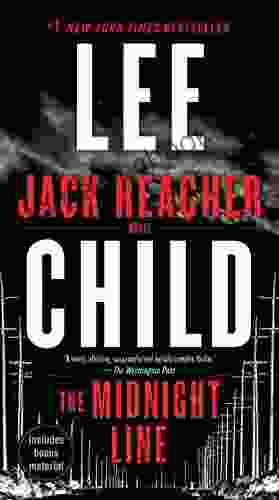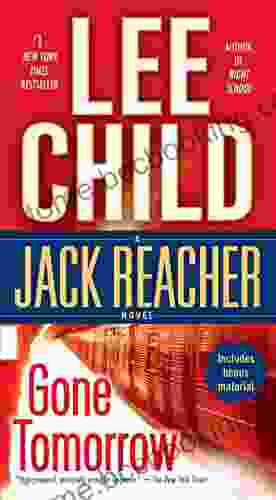Unlock the Secrets of Prosperity: A Comprehensive Analysis of "Why Nations Succeed and Fail" by Ray Dalio

In the realm of economic and political discourse, few books have garnered as much acclaim and attention as Ray Dalio's "Why Nations Succeed and Fail: The Origins of Power, Prosperity, and Poverty." This meticulously researched and thought-provoking work delves into the complexities of national success and failure, offering a profound understanding of the factors that shape the destiny of nations.
This article aims to provide an engaging synopsis of Dalio's seminal work, exploring its key themes, examining its insights, and highlighting its relevance to our contemporary understanding of global affairs. We will delve into the historical, economic, and cultural forces that contribute to a nation's trajectory, analyzing Dalio's framework for understanding the interplay between Free Download and disFree Download, individuals and institutions, and the endless cycle of rise and decline.
4.1 out of 5
| Language | : | English |
| File size | : | 1330 KB |
| Text-to-Speech | : | Enabled |
| Screen Reader | : | Supported |
| Enhanced typesetting | : | Enabled |
| Print length | : | 90 pages |
| Lending | : | Enabled |
The Core Concepts: Free Download, DisFree Download, and the Cycle of Life
At the heart of Dalio's thesis lies the concept of "Free Download," which encompasses the systems, rules, and norms that govern a society. He argues that a high degree of Free Download promotes stability, predictability, and economic growth. Conversely, "disFree Download" refers to the absence or disruption of such systems, often leading to chaos, conflict, and stagnation.
According to Dalio, all nations experience a cyclical pattern of Free Download and disFree Download. In the "great cycle," Free Download gradually gives way to disFree Download as systems become increasingly complex and rigid. This leads to a breakdown in institutions, social unrest, and economic decline. Eventually, a new Free Download emerges from the ashes of the old, starting the cycle anew.
The Role of Individuals and Institutions
Dalio emphasizes the crucial role of both individuals and institutions in shaping a nation's destiny. Individuals, he argues, are the driving force behind innovation, creativity, and economic growth. However, it is essential to have strong institutions, such as governments, courts, and financial systems, to harness and channel individual efforts towards productive outcomes.
Dalio's framework suggests that a healthy balance between individual freedom and institutional governance is necessary for sustained success. When individuals are too constrained by institutions, they may lack the incentive to innovate and pursue their ambitions. Conversely, when institutions are too weak or corrupt, they can stifle economic growth and undermine social stability.

The Historical Perspective: Ancient Rome and Beyond
To illustrate his theories, Dalio draws upon historical examples ranging from ancient Rome to modern-day China. By studying the rise and fall of great civilizations, he identifies common patterns and lessons that can inform our understanding of contemporary events.
In particular, Dalio's analysis of the Roman Empire provides valuable insights into the dynamics of Free Download, disFree Download, and the consequences of institutional decay. He argues that Rome's initial success was built upon a strong military, efficient governance, and a culture of civic virtue. However, over time, corruption, inequality, and political instability eroded these foundations, leading to the empire's eventual collapse.

The Relevance to Present-Day Challenges
Dalio's work has profound implications for our understanding of contemporary global affairs. By examining historical precedents and analyzing current trends, he identifies several key challenges facing nations in the 21st century.
One of the most pressing concerns is the widening gap between rich and poor, both within and between countries. Dalio argues that this inequality can lead to social unrest, political instability, and the undermining of institutions. He advocates for policies that promote economic opportunity for all, particularly for the most vulnerable members of society.
Another major challenge is the rise of populism and nationalism, often fueled by economic anxiety and political polarization. Dalio warns that these movements can lead to a breakdown in international cooperation and the erosion of democratic institutions. He emphasizes the importance of fostering open dialogue, tolerance, and the search for common ground.

: A Path Forward
"Why Nations Succeed and Fail" is a monumental work that provides an invaluable framework for understanding the forces that shape the destiny of nations. By analyzing the interplay between Free Download, disFree Download, and the role of individuals and institutions, Dalio offers a roadmap for navigating the complex challenges facing our world today.
Ultimately, the success of a nation depends on the collective efforts of its citizens and leaders. By embracing Dalio's insights, we can strive to create a more just, equitable, and sustainable future for all.
Let us end with Dalio's own words: "The forces that drive the success or failure of nations are complex, but they are not beyond our comprehension. By understanding the patterns of history, the principles of economics, and the nature of human behavior, we can contribute to building a better future for the world."
4.1 out of 5
| Language | : | English |
| File size | : | 1330 KB |
| Text-to-Speech | : | Enabled |
| Screen Reader | : | Supported |
| Enhanced typesetting | : | Enabled |
| Print length | : | 90 pages |
| Lending | : | Enabled |
Do you want to contribute by writing guest posts on this blog?
Please contact us and send us a resume of previous articles that you have written.
 Book
Book Novel
Novel Page
Page Chapter
Chapter Text
Text Story
Story Genre
Genre Reader
Reader Library
Library Paperback
Paperback E-book
E-book Magazine
Magazine Newspaper
Newspaper Paragraph
Paragraph Sentence
Sentence Bookmark
Bookmark Shelf
Shelf Glossary
Glossary Bibliography
Bibliography Foreword
Foreword Preface
Preface Synopsis
Synopsis Annotation
Annotation Footnote
Footnote Manuscript
Manuscript Scroll
Scroll Codex
Codex Tome
Tome Bestseller
Bestseller Classics
Classics Library card
Library card Narrative
Narrative Biography
Biography Autobiography
Autobiography Memoir
Memoir Reference
Reference Encyclopedia
Encyclopedia Eli Maor
Eli Maor Edward Beauclerk Maurice
Edward Beauclerk Maurice Elizabeth Partridge
Elizabeth Partridge Edward W Said
Edward W Said Elad Elrom
Elad Elrom Sonja Mejcher Atassi
Sonja Mejcher Atassi Elan Golomb
Elan Golomb Paul Wieland
Paul Wieland Leigh Macneil
Leigh Macneil Simeon Wright
Simeon Wright Paula Span
Paula Span Will Jawando
Will Jawando Michael K Brantley
Michael K Brantley Duncan Van Dusen
Duncan Van Dusen Hanife Hassan O Keeffe
Hanife Hassan O Keeffe Eddie Price
Eddie Price Edmund Nequatewa
Edmund Nequatewa Elaine L Orr
Elaine L Orr Elise Hancock
Elise Hancock Edgar Bergen
Edgar Bergen
Light bulbAdvertise smarter! Our strategic ad space ensures maximum exposure. Reserve your spot today!
 Fabian MitchellFollow ·16.1k
Fabian MitchellFollow ·16.1k Adrien BlairFollow ·14.3k
Adrien BlairFollow ·14.3k Rod WardFollow ·14.6k
Rod WardFollow ·14.6k Chris ColemanFollow ·6.4k
Chris ColemanFollow ·6.4k Greg FosterFollow ·6.8k
Greg FosterFollow ·6.8k Douglas PowellFollow ·12.4k
Douglas PowellFollow ·12.4k Christian BarnesFollow ·7.5k
Christian BarnesFollow ·7.5k Ricky BellFollow ·19.3k
Ricky BellFollow ·19.3k

 Clarence Brooks
Clarence BrooksUncover the Secrets in the Dead of Night: Dive into Lee...
Step into the heart-stopping world of Jack...

 Clay Powell
Clay PowellAce the GMAT Grammar Section: Your Last-Minute...
The GMAT is a challenging...

 Salman Rushdie
Salman RushdieEmbark on a Heartwarming Journey with "The All Together...
: Immerse yourself in the charming world of...

 Dawson Reed
Dawson ReedSpring Magic: Stunningly Illustrated Fun for Kids to...
Welcome to the Enchanting World of...

 Bradley Dixon
Bradley DixonGone Tomorrow: A Gripping Thriller by Lee Child that Will...
In the literary realm of thrillers, few...
4.1 out of 5
| Language | : | English |
| File size | : | 1330 KB |
| Text-to-Speech | : | Enabled |
| Screen Reader | : | Supported |
| Enhanced typesetting | : | Enabled |
| Print length | : | 90 pages |
| Lending | : | Enabled |














